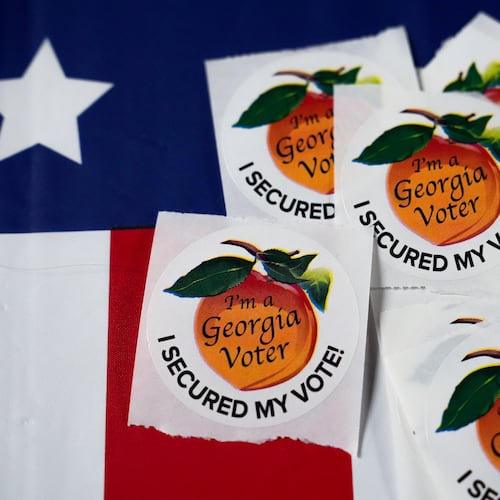This year’s Nov. 4 general election left 53 municipal, county and legislative races across Georgia undecided, according to the nonpartisan website Branch.Vote. Voters must return to the polls Dec. 2 for runoffs.
If districts could use ranked choice voting, citizens in these areas would have fulfilled their civic duty already and the winner with majority support would be known.
Our word “democracy” comes from the Greek for “the people rule,” according to Britannica. Merriam Webster gives “rule of the majority” as a second definition, which makes sense if you allow “the people” to mean, at a bare minimum, half of them plus one — more of the people than not: a majority.
I believe our elections should stick to that minimum standard.
Ranked choice voting gives the people a voice
Credit: Handout
Credit: Handout
Some Georgia municipalities, per their charters and in compliance with state law (Decatur and Holly Springs, for example), define the winner in local elections as the person with the most votes.
This is called a plurality, and it is not the same as a majority.
That may be a “distinction without a difference” in races with only one or two candidates, and sometimes in a race with several candidates but one strong favorite.
Where it violates majority rule is when three, four or more candidates split the vote such that no one receives half-plus-one.
A winner with, say, 35% or even 45% of the votes is backed by some people, not “the” people.
I would like to see jurisdictions with plurality voting switch to majority rule. But perhaps the reason they opted for plurality was to avoid the costly and poorly attended separate runoff needed in majority-rule when no candidate passes 50%. A better way to solve that is instant runoff voting.
Also called ranked choice voting, this process simply asks voters to rank the candidates in order of preference when they go to the polls on Election Day, effectively casting their runoff vote at the same time they cast their first vote. This saves loads of money and time for taxpayers and voters, elections staff and candidates. Even more importantly, it better reflects the will of the majority for at least three reasons.
As already noted, it avoids the huge drop in turnout for separate runoffs, which can mean only a small fraction of voters choose the winner.
Additionally, it gives voice to supporters of less-popular candidates whose second choice might not have made it to the runoff.
And third, it eliminates the “spoiler effect” so that people can truly vote their conscience while not undermining their second choice.
Officials support a change in voting
In 2021, the Georgia Legislature acknowledged the benefits of instant runoff voting and adopted it for Georgia’s military and overseas voters.
Those citizens now get to participate fully in elections without the time lag of a separate, mailed runoff. We have precedent, experience and positive feedback for this approach right here in our state.
There are cities and counties across Georgia that have passed resolutions in support of instant runoff voting (Holly Springs, Atlanta and DeKalb County, for example).
I urge state lawmakers to pass legislation enabling them to try it.
We can look to other parts of the country for experience, but, even better, let us see for ourselves what quicker and more-representative results, lower costs and less burden on voters and campaigns look like.
Jane Branscomb is a retired health policy researcher and former engineer from Atlanta who volunteers with Better Ballot Georgia.
About the Author
Keep Reading
The Latest
Featured




